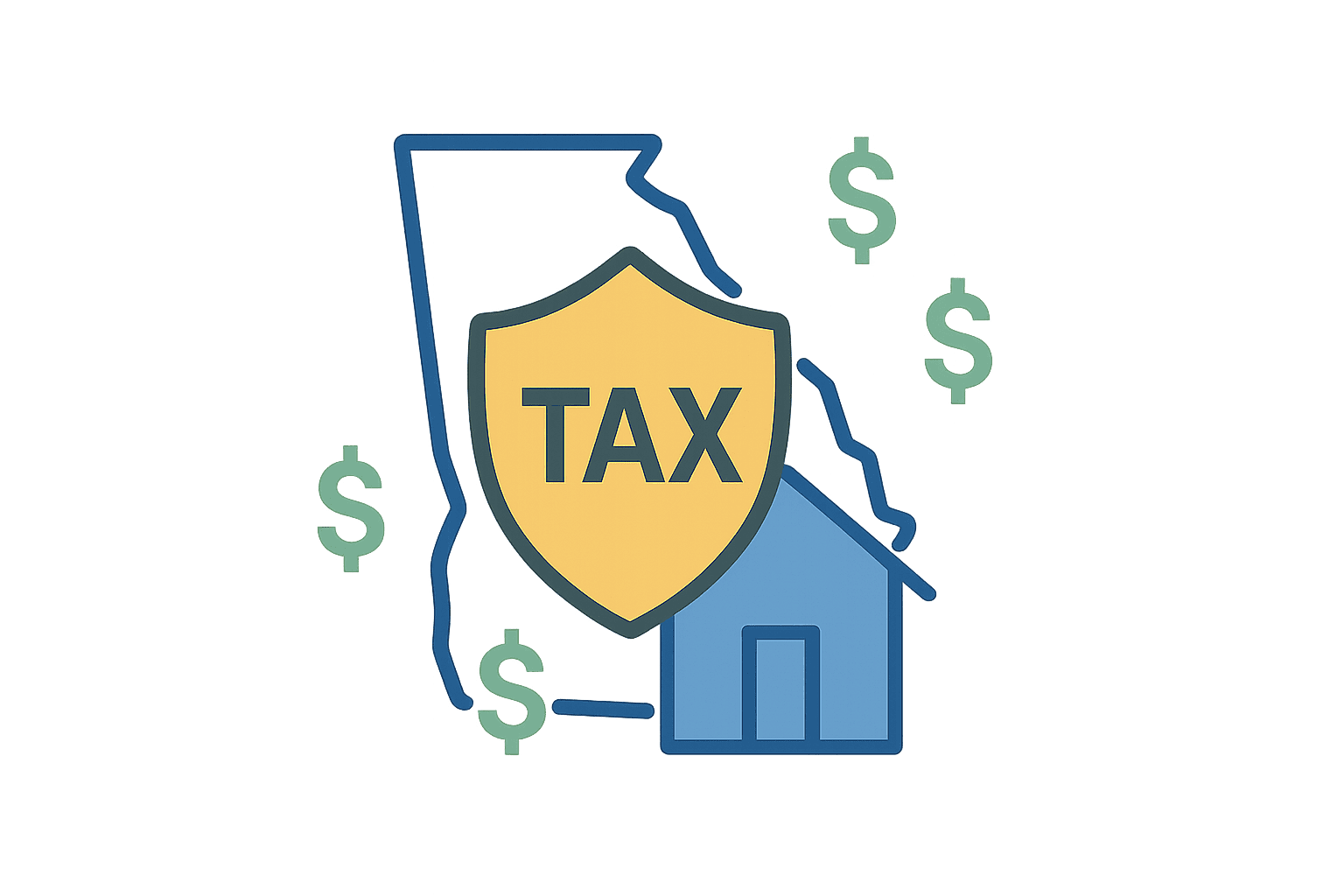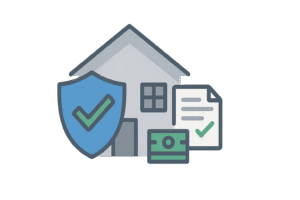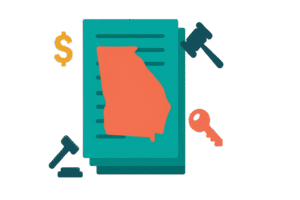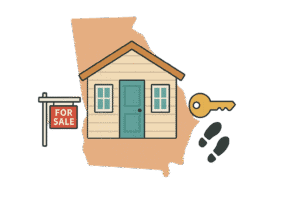How to Avoid Capital Gains Taxes on Your Georgia Home Sale
Avoiding capital gains on home sales in Georgia is a critical consideration for homeowners, as selling your primary residence can be a major financial event….

Avoiding capital gains on home sales in Georgia is a critical consideration for homeowners, as selling your primary residence can be a major financial event. While the prospect of a profit is exciting, many homeowners worry about how capital gains taxes will impact their earnings. As a real estate professional, I have seen countless homeowners surprised by the tax implications at the closing table.
The good news is that most home sellers can legally minimize or even eliminate their tax burden through smart planning. The Internal Revenue Service (IRS) offers several ways to protect your hard-earned equity, and Georgia’s state tax laws have their own rules. This comprehensive guide will explain everything you need to know about navigating capital gains taxes on your home sale in Georgia. You will learn how to keep more money in your pocket, from using the primary residence exclusion to exploring advanced strategies for investment properties.
Note: Tax laws are subject to change. Consult a tax professional for personalized advice.
Understanding Capital Gains: The Basics
When you sell your home for more than you paid for it, the profit is considered a capital gain. While this sounds simple, the actual calculation of your gain is more detailed.
What is a Capital Gain on Your Home Sale?

The formula to determine your gain is simple: Sale Price – Cost Basis = Capital Gain. Your cost basis, however, is not just the original purchase price.
Consider a closing where sellers thought they owed taxes on a $100,000 gain. After reviewing their records, we found $40,000 in qualifying capital improvements and closing costs. This documentation reduced their taxable gains to $60,000, saving them thousands in taxes.
Your cost basis includes:
- The original purchase price.
- Closing costs from when you bought the home.
- Capital improvement costs (which differ from repairs).
- Other qualifying expenses.
Federal vs. Georgia State Taxes
Both the federal government and the state of Georgia have capital gains taxes, but they are applied differently. At the federal level, profits from a home sale held for more than one year are considered long-term capital gains and receive preferential tax rates. These federal capital gains tax rates are 0%, 15%, or 20%, depending on your total taxable income and filing status.
| Filing Status | 0% Rate (Taxable Income Up To) | 15% Rate (Taxable Income Range) | 20% Rate (Taxable Income From) |
|---|---|---|---|
| Single | $48,350 | $48,351 – $533,400 | $533,401 |
| Married Filing Jointly | $96,700 | $96,701 – $600,050 | $600,051 |
| Married Filing Separately | $48,350 | $48,351 – $533,400 | $533,401 |
| Head of Household | $64,750 | $64,751 – $566,700 | $566,701 |
In Georgia, long-term capital gains are treated as ordinary income. This means your regular state income tax rate applies to your gain. The Georgia state income tax rate is a flat rate of 5.19% for 2025.
Short-Term vs. Long-Term Gains
The amount of time you owned your home significantly affects your tax bill.
- Short-Term Capital Gains: These apply if you owned the property for one year or less. The gain is taxed as ordinary income at both the federal level and state level. The short-term capital gains tax rates are typically much higher than the long-term rates.
- Long-Term Capital Gains: These apply after you have owned the property for more than one year. These gains receive preferential tax rates at the federal level.
The Primary Residence Exclusion: Your Key to Tax Savings
The capital gains tax exclusion for a primary residence sale is the most powerful tool for minimizing your tax burden.
What is the Section 121 Exclusion?
The exclusion, outlined in Section 121 of the tax code, allows you to exclude a significant portion of your gain from taxable income. The exclusion amount is up to $250,000 for single filers and up to $500,000 for a married couple filing a joint return. This exclusion can save homeowners tens of thousands of dollars. The IRS provides additional information in IRS Publication 523.

The Two Key Tests: Ownership and Use
To qualify for this exclusion, you must meet both the ownership and use tests. These rules are designed to ensure the home was your main residence.
The Ownership Test
You must have owned the property for at least two of the five years ending on the date of the sale. The two years do not have to be consecutive years. For instance, a military family owned their Georgia home for 18 months, were deployed for two years, then lived in the home for another eight months before selling. They still qualified because their total ownership was over two years within the 5-year period.
The Use Test
You must have lived in the home as your principal residence for at least two of the five years leading up to the sale. These years also do not need to be consecutive years. The IRS looks at where you spent the majority of your time. Short, temporary absences for vacations, medical care, or military service do not disqualify you.
Special Rules for a Reduced Exclusion Amount
Sometimes, unexpected life events prevent you from meeting the full two-year requirements. The IRS recognizes this and allows for a partial exclusion if you sold due to:
- Health issues
- A change in employment
- Unforeseen circumstances
Divorce situations also have special rules. A spouse who receives the home in a divorce can include their ex-spouse’s period of ownership when calculating the ownership test.
How to Calculate Your Adjusted Cost Basis
Your cost basis is crucial for determining how much of your profit is taxable. Many homeowners underestimate their tax basis, which leads to them overpaying on taxes.
What to Include in Your Cost Basis
Your tax basis is more than just the original purchase price. To get an accurate number, you should add qualifying expenses to your original cost. These include:
- The original cost and closing costs from your purchase.
- The costs of capital improvements.
- Major improvements like a new roof, new windows, or a room addition.
- Legal and recording fees.
Keeping a detailed file of every major project on your home is a smart way to track these costs. One client brought in a shoebox of receipts spanning 15 years. We found $85,000 in qualifying improvements they had forgotten about. Capital improvements are different from repairs. A repair, like fixing a leaky faucet, maintains the home’s value, while a capital improvement, like installing new windows throughout the house, increases it.
What to Subtract from Your Cost Basis
If you ever used your home as a rental property or investment property, you must subtract any depreciation deduction you claimed on previous tax returns. This can be complex. Even if you did not claim depreciation, the IRS may assume you should have and will reduce your tax basis by the amount you were eligible to claim.
The Impact of Sale-Related Expenses
Selling expenses also lower your taxable gains. These are costs directly related to the sale. You can subtract them from the sale price to reduce your taxable profit.
Common selling expenses include:
- Real estate agents’ commissions.
- Attorney fees.
- Transfer taxes.
- Marketing and advertising costs.
- Necessary repairs required by the buyer’s contract.
For example, a typical 6% real estate commission on a $400,000 home reduces your gain by $24,000.
Beyond the Exclusion: Other Strategies to Reduce Your Tax Burden
While the primary residence exclusion is powerful, other strategies can help real estate investors and homeowners in specific situations.
Turning a Primary Residence into a Rental
The 5-year period rule offers some flexibility if you convert your primary home into a rental property. You may still qualify for a pro-rated exclusion if you lived in the home for two of the five years before the sale. However, you will owe depreciation deduction recapture taxes for the period it was a rental property.
For example, a couple who moved out of state and rented their Georgia home for three years before selling still qualified for the exclusion on their original use period but owed recapture taxes for the rental income period.
The Like-Kind Exchange (1031 Exchange)
Real estate investors can use a like-kind exchange to defer capital gains taxes indefinitely. This strategy works for investment properties and second homes used for business. A 1031 exchange allows you to sell one investment property and purchase another “like-kind” property without immediately recognizing the gain. This is a powerful tool for real estate investors. It is important to remember, however, that this strategy does not work for your primary residence.
The Installment Sale Method
An installment sale can spread out your tax bill over subsequent years. Instead of getting all the proceeds at closing, the buyer pays you over time. You report the gain as you receive payments, which can keep you in lower tax brackets. This method works well for sellers who have high income in the taxable year but expect to have lower income in subsequent years. However, installment sales carry risks, as you are essentially lending money to the buyer.
Reporting Your Home Sale to the IRS
Understanding when and how to report your home sale is a key part of the process.
When to Report the Sale
You do not always have to report the sale of your main home on your tax return. The IRS does not require you to report the sale if:
- Your gain is completely excluded under the primary residence exclusion.
- You did not receive a Form 1099-S.
You must report the sale if:
- Your gain exceeds the exclusion amount.
- You choose not to use the exclusion.
- You received a Form 1099-S.
- You used the home for business or rental income.
The IRS uses computers to match Form 1099-S reports with tax returns. Failing to report when required can trigger automatic inquiry letters.
Seeking Professional Guidance
Tax laws change regularly, and the IRS rules contain many exceptions. A qualified tax professional or financial advisor can help you navigate these complexities and find opportunities you might miss. During one closing, the sellers had lived in the home, used part of it for business, rented it out, and then moved back in. The tax implications required careful analysis of multiple IRS Publications and tax codes. The cost of professional advice is often small compared to the potential tax savings.
Frequently Asked Questions
Do I pay capital gains on an inherited Georgia home?
Inherited property receives a “stepped-up basis” to its fair market value at the date of death. This usually eliminates most capital gains when you sell shortly after inheriting. If you use the inherited home as your primary residence for two years, you may qualify for the primary residence exclusion on any additional appreciation.
Does the capital gains tax apply to a second home in Georgia?
Yes. Second homes do not qualify for the primary residence exclusion. You will owe capital gains taxes on the full gain, subject to long-term or short-term treatment based on your holding period.
Can I deduct closing costs on my tax return?
Closing costs from your original purchase increase your cost basis, which reduces your taxable gains. However, closing costs from selling are typically not deductible. They reduce your selling price instead.
How do Georgia’s property taxes affect my capital gains?
Property taxes do not directly affect your capital gains calculation. They may be deductible on your tax return in the year they were paid. Georgia property taxes paid at closing are typically prorated between the buyer and seller.
Can I use this exclusion more than once?
You can use the primary residence exclusion repeatedly, but not more than once every two years. This two-year period starts on the date of the sale of the previous home where you used the exclusion. This rule prevents people from flipping houses and claiming the exclusion multiple times in a short period.
Final Thoughts on Tax Planning
Understanding capital gains taxes on your Georgia home sale can seem complicated, but it is a necessary step to protect your finances. The Section 121 exclusion is a powerful tool for most homeowners, offering substantial tax protection when you sell your primary residence. However, it is not an automatic benefit.
To ensure you can take full advantage of this and other strategies, start your tax planning and record-keeping early. Accurately calculate your cost basis, keep detailed records of all capital improvements, and track your ownership and use periods. Waiting until the last minute can lead to costly mistakes.
Ultimately, your home is one of your most valuable assets. By treating the sale with the same care you would any other major financial transaction, you can maximize your profit and gain peace of mind. For a transaction as significant as selling a home, a few hours spent with a qualified tax professional is a small investment that can lead to major tax savings.
For a transaction as significant as selling a home, a few hours spent with a qualified tax professional is a small investment that can lead to major tax savings. To complement this with practical steps for the full process, refer to our guide on avoiding capital gains on home sale through Selling Your Georgia Home: A Step-By-Step Guide.





